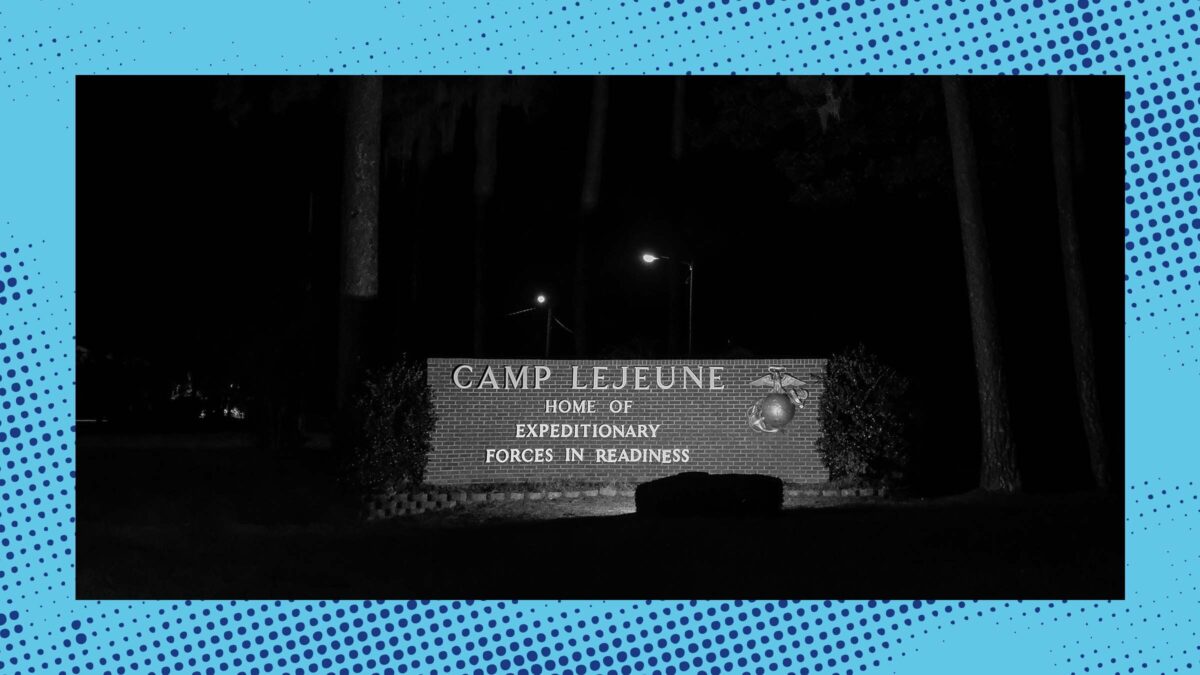From 1953 to 1987, hundreds of thousands of U.S. Marines and their families were exposed to toxic chemicals in the drinking water at Camp Lejeune in North Carolina. In the years since, the veterans and their families have been developing rare cancers and other diseases associated with exposure to industrial solvents like benzene, trichloroethylene, and perchloroethylene. In addition to poisoning servicemembers on its payroll, the federal government compounded the problem by resisting their fight for justice at every step of the way: first by denying that exposures were related to the increased incidence of disease, and then, even after declaring certain diseases presumptively service-connected for disability claims, by denying claims and applying incorrect effective dates for backdated disability payments.
Finally, under intense public pressure, Congress passed the Camp Lejeune Justice Act of 2022, allowing veterans to bring civil claims against the government to compensate them for their illnesses. Despite providing relief to many veterans, the legislation is unfortunately too little, too late for more of them: One lawyer involved in the litigation estimates that 20 percent of cases are for wrongful death because the veterans have already died of their illnesses. To make matters worse, the government is now arguing in court that the CLJA does not provide for jury trials, worrying that juries will be sympathetic to veterans’ claims. Basically, if the government gets its way, sick veterans and their families will have their cases decided by judges, who some studies have shown award less money in damages than juries do.
The worst part is that the government is probably not wrong to try to limit its losses using legal formalities. This argument builds on a series of legal decisions and statutes limiting veterans’ ability to receive compensation for service-connected injuries, using many of the same principles that allow the government to screw over civilians without consequence. Although the Supreme Court’s conservative supermajority claims to champion an originalist understanding of the Constitution, judge-made doctrines that limit individuals’ ability to sue the government pop up whenever the justices believe it will cost the government a little too much money.

(Photo by Fred Marie/Art In All Of Us/Corbis via Getty Images)
In the Camp Lejeune case, the government relies on a series of Supreme Court cases, including Lehman v. Nakshian, which held that a person suing the federal government has a right to trial by jury “only where Congress has affirmatively and unambiguously granted that right by statute.” In other words, unless Congress includes a clear statement about juries in every law that authorizes normal people to seek redress from a sprawling federal government with the demonstrated capacity to literally poison them, the poisoned people are out of luck.
But this clear statement requirement appears nowhere in the Constitution. Rather, it is an extension of the concept of sovereign immunity, which draws on English common law to immunize the sovereign—here, the U.S. government—from suit. Although it is derived from the “divine right of kings,” which was squarely rejected by the founders, the early Supreme Court embraced sovereign immunity. In 1821, the Court stated that “the universally received opinion is that no suit can be commenced or prosecuted against the United States,” citing no authority other than Chief Justice John Marshall’s supposed common knowledge. Even when Congress consents to be sued, the Court might still let the government off the hook, as the justices have applied sovereign immunity where the statutory text makes clear that lawmakers intended to create a cause of action.
Sovereign immunity is not the only principle that judges have made up to require congressional consent to sue. The Court has also held that Congress must further consent to a jury trial when it creates a right of action against the government; otherwise, no such right exists. Plaintiffs are often tripped up by this requirement because Congress frequently withholds the right to a jury trial. For example, the Federal Tort Claims Act (FTCA), which allows civilians to sue the federal government in certain tort cases, does not allow for jury trials. Similar to the concerns raised by the government attorneys in the Camp Lejeune case, Congress said that “juries would have difficulty viewing the United States as a defendant without being influenced by the fact that it has a deeper pocket than any other defendant.” Some economists have made similar arguments in the veterans’ policy space, arguing (on Veterans Day no less) that disability spending is out of control because combat deployments “have few harmful long-term effects on well-being” that could justify the cost.
Sovereign immunity is hardly the only limitation on access to justice that veterans face. Although Congress included consent to sue the government in the FTCA, it specifically excluded claims from servicemembers related to “combatant activities.” Presumably, this would leave open the option to sue for injuries related to non-combatant activities—like, for example, water contamination at a Marine base. But back in 1950 in Feres v. U.S., the Supreme Court held that—notwithstanding the text of the FTCA—judges must make the law “fit” within the statutory scheme, and concluded that almost all cases related to military service fall outside the FTCA. If not for Feres, there likely would not be a need for the Camp Lejeune Justice Act at all, and sick veterans may have been compensated decades ago.

Mike Bailey gets ready for a motorcycle ride in Oakland, California, January 2013. Bailey was diagnosed with stage 4 bladder cancer a few years earlier, which he believes was a result of exposure to water contamination at Camp Lejeune. (Photo By Paul Chinn/The San Francisco Chronicle via Getty Images)
Because sovereign immunity was invented by courts, courts also have the power to clean up their mess. In 2022, Justice Clarence Thomas dissented from a denial of certiorari in Clendening v. United States, a suit brought by the widow of a Marine who died of cancer caused by toxic exposure at Camp Lejeune. In his opinion, Thomas criticized the Court for inventing an “atextual, policy-based carveout that prevents servicemen from taking advantage of the FTCA’s sweeping waiver of sovereign immunity” and called for Feres to be overturned. As long as Thomas and his fellow conservatives are setting fire to precedent when it comes to reproductive rights, affirmative action, and gun safety, how about getting rid of Feres altogether?
Military servicemembers and their families should be able to have juries hear their cases against a government that poisoned them. Yet even after Congress ensured that Camp Lejeune veterans have the right to sue, courts may be already preparing to chip away at it.

